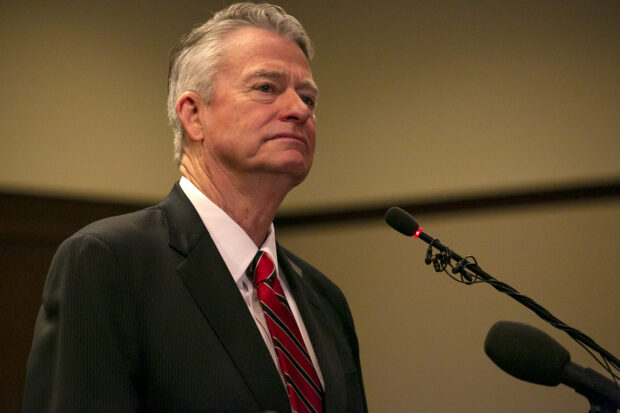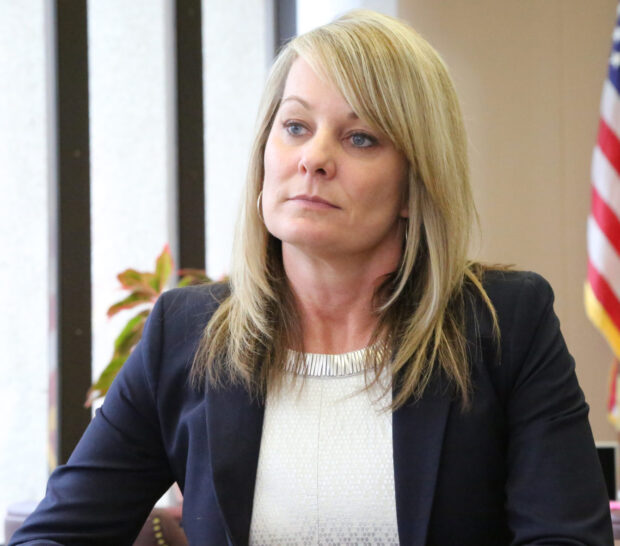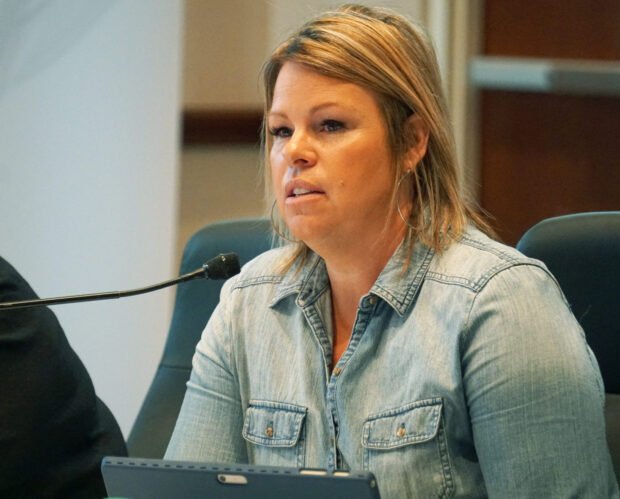Idaho Education News is launching a reporting project that will take a close look at how Idaho’s top education policymakers approach their jobs and perform in 2020.
To that end, we are committing to tracking three state leaders — Gov. Brad Little, State Superintendent Sherri Ybarra and State Board of Education President Debbie Critchfield — and document how they approach education policy this year.
The idea partially came out of the Our Kids, Idaho’s Future task force, where Bill Gilbert talked about how accountability should start at the top and how leaders can shape culture. The idea also came from staff meetings at Idaho Education News, where we repeatedly talked about how 2020 is a pivotal year for education, for a variety of reasons.
The project will feature installments spaced throughout the year. The installments will focus on leadership accountability and give taxpayers, parents and educators a better idea of their priorities, follow through on those priorities and accomplishments.
These three help define school accountability in Idaho, and we’d be interested to hear how you would hold them accountable.
The leaders
Gov. Brad Little

Little, R-Emmett, is beginning his second year as governor. His background is in ranching and politics. He served as lieutenant governor for 12 years and was a member of the Idaho Senate before that.
Little made education a top priority in his 2019 and 2020 State of the State addresses. He puts a lot of stock in the Idaho Reading Indicator (IRI) test, and routinely says there is no excuse for all Idaho students not to be reading a grade level buy the end of third grade.
In 2019, he convened the Our Kids, Idaho’s Future education task force. Little asked the task force to deliver a five-year plan for K-12 schools, and the task force issued five recommendations in November.
Superintendent of Public Instruction Sherri Ybarra

Ybarra is in her second four-year term as state superintendent, first elected in 2014. Before she was elected, Ybarra served as a teacher, vice principal, principal and federal programs director in the Mountain Home School District.
As state superintendent, Ybarra sits on the State Board of Education and heads up the 140-person State Department of Education, which oversees the day-to-day operations of Idaho’s public schools.
Ybarra routinely stresses that she runs the SDE to support schools, not serve as a compliance organization. Her strategic plan states that “all education stakeholders in Idaho are mutually responsible for accountability and student progress.”
She supports the Idaho Content Standards and favors multiple measures to gauge student achievement and student outcomes as opposed to a single test or metric.
State Board of Education President Debbie Critchfield
Former Gov. Butch Otter appointed Critchfield to the State Board. She was elected president of the State Board in April.
In her first year as president, Critchfield has called for changes in how the State Board operates. She wants the policy-setting body to be more strategic and deliberative.

She’s called for universities to hold the line on tuition increases.
She’s called for reviewing Idaho’s education goals during an upcoming February retreat.
And she’s pledged to be more of a partner than a spectator during the 2020 legislative session.
Prior to being appointed to the State Board, Critchfield worked as a substitute teacher, served on the Cassia County School Board and was active with the Idaho School Boards Association. She works as a public information officer for the Cassia County School District.
Readers should take note of one caveat with this reporting project. While Little serves as Idaho’s chief executive and Ybarra is a full-time schools chief earning more than $105,000, Critchfields’s position on the State Board is part-time and unpaid. While Ybarra and Little work out of the Capitol Mall complex in downtown Boise, Critchfield lives in Oakley and works for the Cassia County School District by day. Her distance, schedule and employment obligations all mean that she can’t be as active in the Statehouse on a daily basis as Little and Ybarra.
The schedule
Post legislative recap
Coming in April
- How did each leader approach the 2020 session?
- How active and visible were they?
- What changed in Idaho education during the 2020 session?
- What passed and what didn’t?
- What about the budget?
- Are the K-12 task force recommendations still standing?
- What’s happening in higher education?
- How do lawmakers and education stakeholders performed during the session?
Back to school
Coming in September
- What changed over the summer?
- What new laws are hitting the books as the new school year begins?
- How did Little spend the summer? Ybarra? Critchfield and the State Board?
- What does the latest accountability data tell us?
- Are Idaho’s schools stronger or better supported at the beginning of the 2020-21 school year than they were a year ago? How do we know? Why or why not?
Year in review
Coming in December
- A look back on 2020.
- How did we do in education this year?
- Who was a leader and who sat on the sidelines?
- Do the 2020 elections tell us anything about the state of Idaho education?
- What was left unresolved in 2020 or needs to be addressed in 2021?
- At this point, Little will be nearly halfway into his first term and Ybarra will be nearly halfway through with her second term. Have they delivered on their promises?
Have your say, and help us improve our reporting
Before we dive into this project, we want to hear what’s important you, Idaho taxpayers, parents and educators.
- What do you expect out of your governor, your state superintendent and your State Board president?
- What does a successful legislative session look like from where you stand?
- What’s the most important thing our leaders can do for K-12 schools? For higher education?
- What constitutes success for your local school?
- What about for the state as a whole?
- What student outcomes are most important?
- What metrics matter to you?
- How can policymakers do to make college more affordable?
- What questions should we be asking the governor, the superintendent and the State Board president?
If you have thoughts on any of these questions, or have suggestions for topics we haven’t mentioned but should be tracking, please send an e-mail to reporter Clark Corbin at [email protected]. You can choose to make your suggestions anonymous, or you can speak on the record and potentially be referenced in one of our articles.
